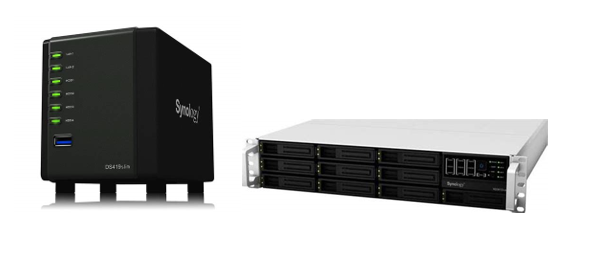Servers and NAS devices offer similar capabilities in that they both provide a centralized location for users on a network to store, access, edit and share files. But there are some differences between them hat aren't always obvious.
![]() By Fernando Solórzano
By Fernando Solórzano
Date of Creation: 2020-02-20
Last Update: 2023-02-22
File servers and NAS devices (Network-Attached Storage) each provide a great way to share files across devices on a network. But the typical file server offers more powerful hardware and greater functionality than a NAS device.
For example, a file server and NAS device both allow you to control who has access to specific files and folders. Administrators accomplish this by creating user groups and giving those groups access to the files they need to do their jobs. But a file server typically offers more configuration options in terms of security and more granular access controls than a NAS device.

A NAS (Network-attached storage) and a Server
With the difference in functionality between file servers and NAS devices comes a difference in cost. File servers offer greater processing power and as a result, they're more expensive.
Server operating systems also drive up the price because they often require companies to purchase a server license, and in some cases, Client Access Licenses, which give users and devices the right to access the server. In contrast, most NAS software comes with the NAS device and does not require licensing.
Now, from the SmartClass+ Perspective, It is important to explain why our application needs a centralized storage device and how it works. The Database, in which, the teacher accounts, student accounts, and the exercises proposed and completed by all of them is actually a passive folder, not an active application itself. The application (SmartClass+) as such, actually runs on the Teacher's computer and on the students' computers. Thus the main feature that the storage device where this database is going to be hosted must have is the "ability to be accessed by multiple instances".
This means that both, a Server and a NAS are good options. However, Servers usually have many other additional features that exceed the basic needs of our platform. thus, the acquisition of a NAS, in addition to being technically sufficient (since the information stored there can be accessed from multiple computers) is also economically much more viable for the institution, as well as more easily configurable for this purpose.
Often the same server will be tasked to store the passive SmartClass database, and also host active applications such as the SmartClass+ BYOD Manager and/or the SmartClass+ WEB Manager. A NAS device normally cannot host active applications.
Contact us if you would like more information.
